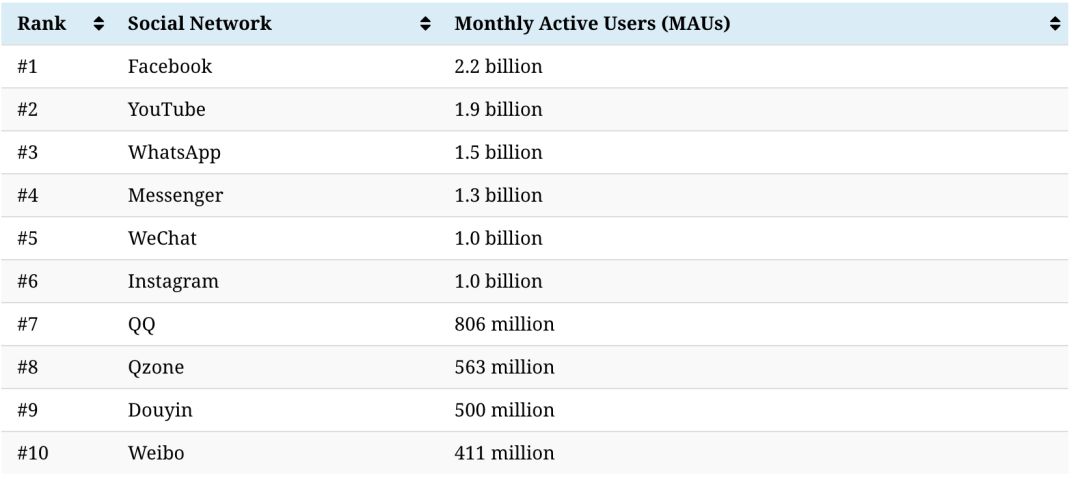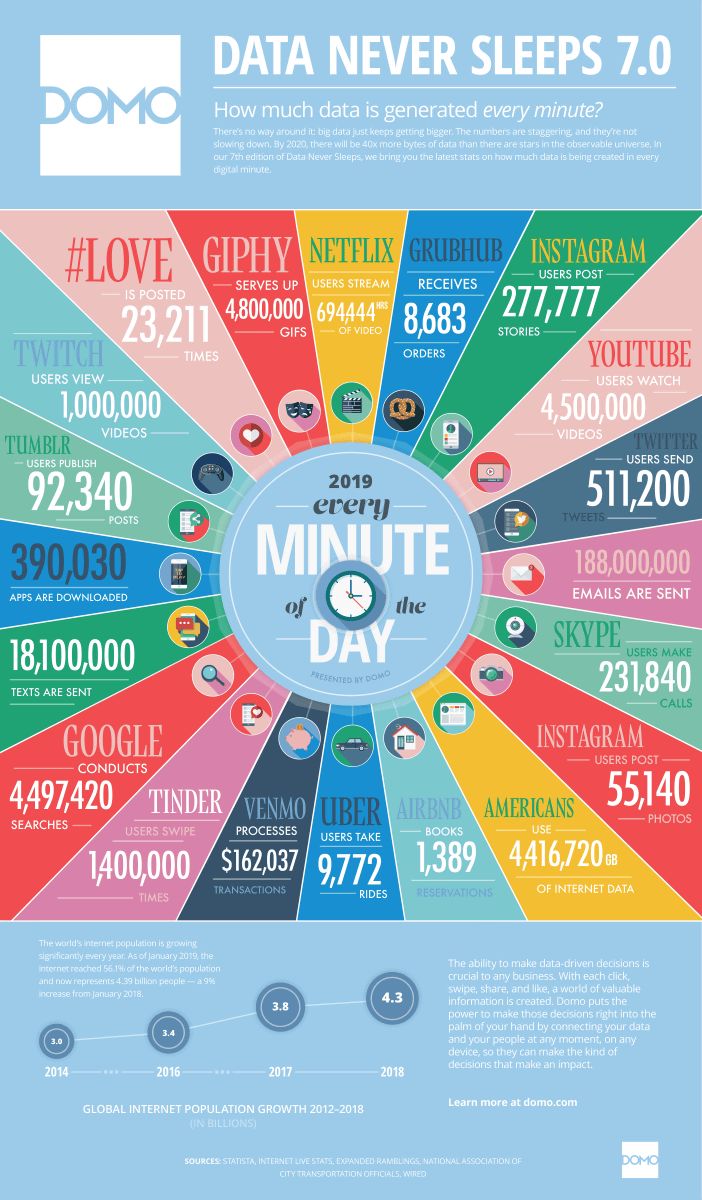The growing content of user proliferation and the inability to keep up with the conflict between audit measures and efficiency.
Editor’s note: This article is from WeChat public account “A fat world” (ID : we_the_people), author: Liu fat.
Time is in the middle of 2019, Facebook’s global monthly life has exceeded 2.2 billion, Youtube is 1.9 billion, WeChat is also more than 1 billion, it can be said that the Internet has covered the majority of the world’s population, and with the use of population synchronization There are also user durations, as well as content production and consumption levels are also exponential blowouts, this massive content has formed a huge management difficulty and audit challenges for both large platforms and small companies.
In 2018, more than 300 million photos were uploaded every day on Facebook, 510,000 comments per minute, and 300,000 new statuses. The number of photos and videos shared on Instagram is 95 million times a day. Every day, 1 billion images are uploaded. By 2018, approximately 2.5 trillion bytes of data were created each day, and the data generated over the past two years accounted for 90% of the world’s total data. It is expected that by 2022, global Internet traffic will reach 7.2 PB per second.
While the volume of content is being blown out, the form of content is constantly changing.
In addition to traditional graphic content, the proportion of audio, long video and short video, and live broadcast is increasing, which is for those who pursue both real-time (release speed and user experience) and can’t pursue problems (reporting rate and negative). The content platform audit management of the event) presented a huge and severe challenge.
The world’s top UGC platform, including Facebook and Youtube, is still very difficult to deal with such old-fashioned issues, especially the most concerned about the content of young people, racism and transnational culture/multilingualism in developed countries. In fact, they have not been able to hand over a satisfactory answer to all parties.
And in this year’s well-known Internet content community products in China, there are no more than zero models for the removal or even closure, even though they each have their own problems, such as pornography, micro-business, content, etc. But in the final analysis, This is the contradiction between the increasing volume of content generated by user surges and the inability to keep up with the review measures and efficiency.
One, Facebook:Respond to massive content with AI and computing power
Facebook suffered a huge trust crisis throughout 2018. In addition to improper handling of data interfaces and user privacy, the content review policy on the platform was also seriously questioned. But in fact, the core problem behind it is that this company is the world’s largest Internet content throughput platform.
And the content is not only released and consumed on the Facebook app, but also spread and promoted on the company’s 1.5 billion monthly Whatsapp, 1.3 billion Facebook Messenger and 1 billion Instagram, so the content of the company The review pressure will be so great.
So what is the response from Facebook?
At the famous US Congress hearing last year, Zuckerberg mentioned the AI more than 30 times in an hour, insisting that AI is the answer to the platform content review. His original words are:
“In the next five to ten years, AI will become the world’s largest social network defender, solve its most pressing problems on a global scale, and help companies answer difficult questions like auditing, fairness, and human intemperance.
“
Small said that 99% of Facebook’s content about ISIS and Al Qaeda was tagged by the artificial intelligence system and deleted before people saw it.
But AI wants to combine content review and To land, you must come up with some specific means.
Facebook’s current review is divided into text review, image and video review, and a large number of manual collaboration.
Text review, Facebook launched the DeepText (deep text) engine, using deep neural network architecture to understand the content of those posts, it is said that it can understand the text of thousands of articles at the same time with near human precision. content. Compared with the auditing system of major platforms in China, its advantages are faster, on the other hand, Facebook is a global community, and DeepText can review texts in more than 20 languages.
DeepText can even analyze the user’s thoughts in real time through the content sent by the user, through the extraction of intentions, emotions and entities (people/places/events), combining text, images, and automatically removing spam interference. Ability on Facebook Me

